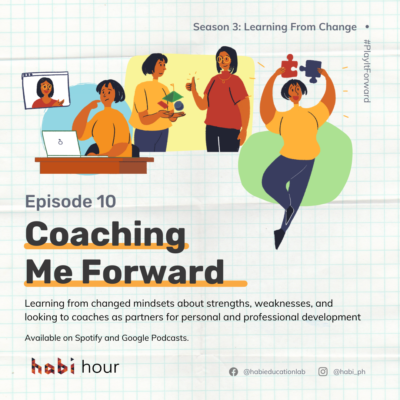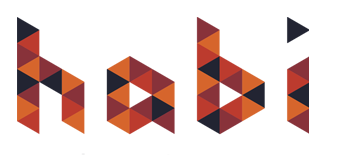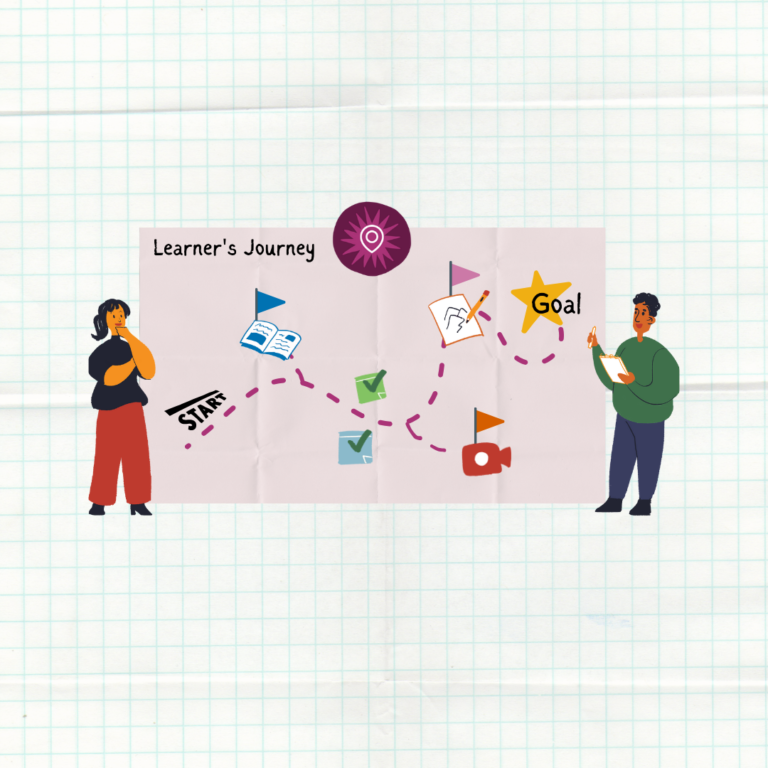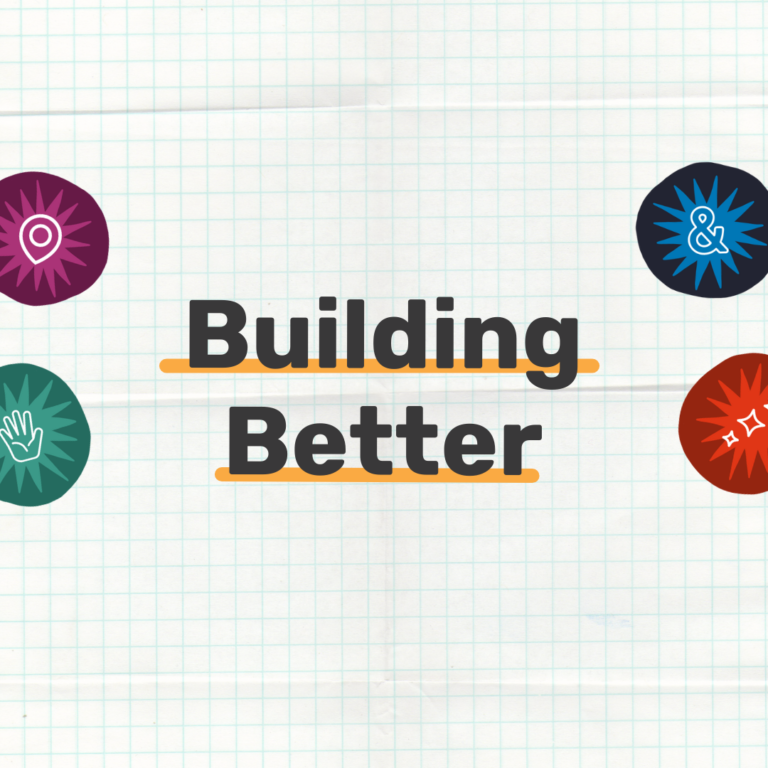Learning from changed mindsets about strengths, weaknesses, and looking to coaches as partners for personal and professional development

Overview
25 March 2022 | 17 min and 38s
In this episode, we share with you Habi’s journey with embracing strengths and building a strengths-based culture through the power of coaching. Whether you’re already getting coached, you’re just thinking about getting coached, or you’re skeptical about coaching – come and have a listen. Let’s learn together.
Transcript
Introduction
Celina (voice over): In the last episode of Habi Hour, we talked to Coach Clifton and Coach Bernice.
Clifton: I think marami ngang different kinds of coaches, and I see it as an evolution of education.
Bernice: Coaching is meeting your coachee where they are at. What is the situation today? Let’s look at it, let’s assess, let’s talk about it, and let’s see what your options are moving forward.
Clifton: It’s so exciting in the way that it speaks or it shows how people want to learn and how people teach. And now that we begin to see the movement from the classroom to a more nimble and personal way of teaching.
Celina (voice over): And as someone who experienced just how exciting coaching can be, allow me, Celina, and my Habi team mates to share with you our unique coaching journeys today.
Whether you’re already getting coached, you’re just thinking about getting coached, or you’re skeptical about coaching—tara, kuwentuhan tayo!
MUSIC: Habi Hour Intro
Our misconceptions and apprehensions about coaching
Celina (voice over): In our last episode, we talked about how there really are different kinds of coaches: may sports coach, financial coach, life coach, career coach, and in our case in Habi, may strengths coach. And like other helping professions such as teaching, counseling or social work, there are varying views about coaching and about what coaches actually do.
[light guitar strums]
Amihan: One misconception I had of coaches before, uhm, coaches dictate.
Amiel: Akala ko dati ’yung coaching makikinig ka lang. Makikinig ka lang sa coach. So magha-highlight siya ng kuwento niya tapos magshe-share siya ng experiences niya, magbibigay siya ng direction, tapos siya yung magda-drive talaga ng coaching session.
Janver: There’s a coach because there are people who lack knowledge regarding certain matters. At sila lang dapat yung i-coach kasi nga they lack knowledge regarding that matter. Or they have little knowledge regarding that matter.
Amiel: Sa mga taong kailangan ng help to develop their weaknesses or yung, sa mga taong may problem doing a certain activity.
Celina (voice over): Someone who dictates, someone who does all the talking while you do all the listening, someone who fills you up with their expertise because you don’t have it. Someone who will point out your weaknesses or help you solve your problems. Loaded talaga ang salitang coach, ano?
Kaya alam ninyo, n’ung sinabi sa amin sa Habi that all of us in the team will be working with a strengths coach, we also had our apprehensions, ha. And sabi nga ni Coach Clifton…
Clifton: Definitely I find it more convenient to coach the coachees who sign up for coaching rather than coachees who were signed up by an external party. If they were, for example, signed up by another party or they were forced by their boss or their family member, then a different approach would be necessary for the coach to take.
Celina (voice over): We didn’t really sign up for it. We were signed up for it though. But you know what? When you trust the process, life can surprise you in good ways. May mga pasabog.
Amiel: Actually, interesting for me kasi hindi sa weaknesses ko naka-focus, and bago to sa akin, kasi diba kadalasan yung mga coaching naka-focus siya sa kung saan ka mahina, magpro-provide sila ng mga tips, o ng mga techniques to help you na mag-improve doon, ganyan. Dito hindi. Mas palalakasin pa ’yung mga strengths mo, tapos iga-guide ka kung paano mo puwedeng magamit nang tama yung mga ito.
Mas positive yung approach dahil nga sa strengths ako naka-focus.
Strengths-based coaching in Habi
Celina (voice over): The kind of coaching that we do at Habi is called “strengths-based coaching.” Every single team member was asked to take the Gallup CliftonStrengths test so we could unlock our unique lists of 34 talent themes. The test shows you your top 10 talent themes. These are things that come naturally and instinctively to you.
For example, some of my top talent themes are Activator, Achiever, Learner, Strategic and Maximizer. What? Don’t worry! These words and terminologies were also foreign to me when I started my coaching journey. That’s why it was so helpful that the test results came with unique reports to explain each talent theme. And paired with a coaching session, I had someone who could help me understand how to really turn my talents into strengths.
[light guitar strums]
JPaul: Before coaching, tingin ko medyo aware naman ako sa kung sino ako. But since coaching, narealize ko na marami pa palang aspeto ng pagiging ako na puwede pang i-explore, aspeto ng pagiging ako na baka hindi ko masyadong napag-isipan, or puwede pala siyang tingnan in a different way or in a different light. Mga bagay na akala ko dati ay weakness, mga bagay na akala ko dati, dapat ko siyang ayusin or ’wag gawin.
For example, dati hindi ako gan’on kakumportableng mag-devil’s advocate sa mga meeting kahit na nae-enjoy ko s’ya kasi feeling ko masyadong nega o kill-joy. Pero dahil sa strengths coaching, natutunan kong Deliberative ko pala ’yun na nag-a-anticipate ng risks para maiwasan namin as team.
Thessa: I felt how inadequate it is to just being aware of my strengths are. Like, “Okay, I’m a Relator, a Developer, and my Discipline is very high.” But in the beginning, they were just words for me. Through coaching. I learned how to make use of these as strengths. Like paano ko sila magagamit, how I put these into action. D’un talaga ako naalalayan ng aking coach.
Embracing our strengths
Celina (voice over): With the help of a strengths coach, we work to understand our talents better, use them more intentionally, and turn talents into strengths. Name it, claim it, aim it!
You might be thinking, “Oh, isn’t that kind of self-serving? You sit with a coach and spend the company’s time and resources to do inner work?” You’re right; coaching really is an investment in our people. But come to think of it, any effort you put into developing yourself as an individual develops you as a team member.
[light guitar strums]
Kaye: Making decisions is very hard for me. I’m the kind of person who needs as much information as possible before I make a decision. I also tend to see the danger or the risks in everything. Even something as simple as posting deciding on Habi’s social media is not something that I can decide on the fly. Lagi ako napapaisip – have we done this before? Does it set a good precedent? Kaya ba natin panindigan? Yung lagi kong worry is that because it takes me a while to make decisions, it slows the team down or nawa-water down yung excitement nila kasi by the time I do make a decision, hindi na fresh yung idea.
After strengths coaching, I learned that these are actually talents—Input and Deliberative are in my Top 10. I’m good at gathering information and anticipating possible risks. These are things that actually help me to make better decisions. Of course, just because these come naturally to you doesn’t mean that it can’t be a source of insecurity so it really took me a lot of sessions with Coach Bernice to claim these talents as something that is valuable not just to the organization but to my team. People appreciate that I think with care. It’s not something I should feel embarrassed by.
Chess: Using a strengths-based approach in the workplace really gave us, and everyone in the team the same language to discuss and explore our unique abilities. I noticed how it’s helped our team be more strategic with sharing the workload. ‘Yung tipong if this is the task at hand, we now ask ourselves, which of our strengths will thrive and flourish in this task? For example if the task is writing a documentation or final report, I offer to do it ‘cause I know my talent themes such as Intellection, Input, and Connectedness will be put to good use. Na-eenjoy ko na yung task, nakakasulat pa tayo nang maayos na report.
Kaye: So now, I can confidently tell my teammates “you get my best work when you give me all the information that you have, and enough time to think about it.” And because I know my teammates talents and strengths, I know who to look to when I do need quick decisions made.
It’s also very empowering – I feel good knowing what my unique contribution to the organization is and being able to claim that this is what I’m good at.
Celina (voice over): At siyempre, kung gumagamit ng strengths-based framework ’yung individual team members mo, it helps cultivate a strengths-based workplace where unique individuals and their talents are appreciated and valued.
Sa Habi Halimbawa, when we get together with a new project team, we take time to listen to each member share what their top talents are. We even have a team “cheat sheet” that has all of our team member’s talent themes, and this helps us understand where they are coming from, or what we might be able to tap them for based on our workplace needs. In our check-ins, we sometimes ask, “What talent are you bringing to the table today?” And at the end of each month, we do a Strengths Shower where we give talent badges to our teammates to highlight moments when we saw them really using their talents intentionally and in a way that helps the team.
In true Habi fashion, we have been prototyping different ways to be more strengths-based at work, while constantly engaging in coaching sessions individually.
[light guitar strums]
Thessa: We meet twice a month to talk about how we can make use of my strengths sa konteksto ng pagtratrabaho. And I’d say na I always enjoy those sessions. Kahit minsan papasok ako d’un sa call nang hindi ko alam kung ano nga ba ’yung mga tatanungin ko at that moment, hindi ko alam kung ano yung mga pag-uusapan namin. But always, always, after the session, what I have is clarity on my next steps and clarity of how my brain works, of how I can make use of my strengths.
Amiel: To be honest, akala ko dati yung coaching makikinig ka lang. Makikinig ka lang sa coach. So magha-highlight siya ng kuwento niya tapos magshe-share siya ng experiences niya, magbibigay siya ng direction tapo, siya yung magda-drive talaga ng coaching session. Pero ngayon, ’yung coaching, sa akin, ’yung coachee pala yung magda-drive ng conversation. Ikaw yung magha-highlight ng experiences mo. Ikaw yung magha-highlight ng story mo, tapos d’un kayo magstart. Ime-meet ka ng coach kung nasaan ka. Tapos ayun ’yung magiging foundation ng conversation niyo. Ikaw yung magda-direct nung sarili mong coaching session. And I think it’s beautiful.
JPaul: Ang nagiging usapan sa coaching ay pag-a-identify ng alin ‘yung instances halimbawa yung strengths and talents kong beneficial sa akin at sa aking teammates, at kung kailan naman siya nagiging barrier, o nagiging challenge, or nagiging masyadong self-serving.
Akala ko dati na may piling aspeto lang ng buhay ang puwedeng gamitan ng strengths coaching, pero ngayon, sa ilang coaching sessions na napuntahan ko, at minsan sobrang random at feeling ko walang katuturan ’yung mga pinagdadadala ko sa mga coaching sessions ko, kumbinsido na ko ngayon na talagang lilitaw at lilitaw ang strengths at talents ko sa anumang ginagawa ko.
The value of having a strengths coach
[light music]
Celina (voice over): Coaching can be really exciting because even when we’re practicing a strengths-based culture as a team, every single member of the team has a unique journey with it eh. Some of us are still working to name our talents as we notice them in our day to day. Some of us have fully embraced our talents and proudly talk about them like superpowers we’re happy to contribute to a team challenge. Some of us have off days when we forget that we have these talents to look to, and that’s one of the reasons why having a coach can be so valuable.
Amiel: So nakakapag-boost din siya ng self-value or worth kasi mas alam mo kung ano ’yung kaya mong gawin at kung sino ka. At ayun, kung paano mo siya magagamit nang maayos.
Thessa: There are a lot of moments when people need to make decisions, and if in those moments you feel the weight of analysis paralysis, like you continuously ask yourself how to move forward or how you would be able to sit in this discomfort of not knowing what’s next, I’d say that coaching might just be the help that you need. With coaching, you’ll have someone to remind you of your values of how you do things, what your strengths are, and coaching will be able to give you the clarity that sometimes, tayo as individuals we can’t come across them easily.
Closing and Synthesis
Celina (voice over): Coaching is such a personal experience because you design your journey as you go through conversations with your coach. It’s a process that celebrates your person, whether you’re a student, a professional, a manager, a parent, or just you, someone who is doing their best in life!
Just last week in my coaching session with Coach Bernice, I asked her, “Bernice, what’s the point of all these again? Why do I even want to develop my talents into strengths?” I needed a reminder. At simple lang ang sagot n’ya—We do this inner work because we want to be happy and because we want to have positive contributions in whatever context we are in while we’re around.
MUSIC: Habi Hour Outro
Celina (voice over): We are so used to being told or to actually saying – o mali yan! Hindi ganyan, ganito dapat. This isn’t good enough. Now, imagine a world where we highlight the good in ourselves and in the people we interact with.
And on top of this, imagine a world we are all invest time and resources to really get to know ourselves more deeply, to get coached on how to develop our talents into strengths, making us better team members, and better persons.
In Habi, Strengths coaching is a radical change that we chose to embrace as a team, and now, we’re ready to share this gift with you. If you’re curious to know your own talent themes and are happy to have a chat with our Coaches Bernice and Clifton to gain a better appreciation of the unique being that you are, message us through our social media or through coach@habieducationlab.org.
We are Habi Education Lab and we’re ready to coach you forward 🙂
Gerson (voice over): This episode was written, edited, and produced by Habi Education Lab. Original theme music by Howard Luistro. For more Habi Hour episodes, follow us on Spotify, Anchor, Google Podcasts, or visit https://habieducationlab.org/habihour. Salamat sa pakikinig. Thanks for listening.


